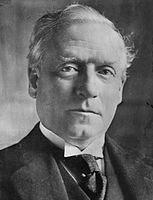
Hidden Markov model‐based robust H∞ fault estimation for Markov switching systems with application to a single‐link robot arm
Sign Up to like & getrecommendations! Published in 2021 at "Asian Journal of Control"
DOI: 10.1002/asjc.2525
Abstract: In this paper, the hidden Markov model method is used to represent the asynchronous mode variations between the original systems and the fault estimator. The robust H∞ performance index is employed when calculating the fault… read more here.
Keywords: hidden markov; fault estimation; markov; markov model ... See more keywords

Fault estimation and synchronization control for complex dynamical networks with time‐varying coupling delay
Sign Up to like & getrecommendations! Published in 2021 at "International Journal of Robust and Nonlinear Control"
DOI: 10.1002/rnc.5388
Abstract: This article is devoted to simultaneously solve the problems of fault estimation and synchronization for a class of delayed coupling complex dynamical networks. First, an intermediate estimator is established for each node with the aid… read more here.
Keywords: complex dynamical; estimation synchronization; fault estimation; dynamical networks ... See more keywords

Fault estimation for periodic piecewise T‐S fuzzy systems
Sign Up to like & getrecommendations! Published in 2021 at "International Journal of Robust and Nonlinear Control"
DOI: 10.1002/rnc.5733
Abstract: This article addresses the fault estimation problem for continuous‐time periodic piecewise T‐S fuzzy systems affected by both faults and disturbances for the first time. Rather than conventional time‐invariant results on fuzzy systems, a fault estimation… read more here.
Keywords: piecewise fuzzy; time; periodic piecewise; fault estimation ... See more keywords

Robust fault estimation controller for fractional-order delayed system using quantized measurement
Sign Up to like & getrecommendations! Published in 2019 at "International Journal of Dynamics and Control"
DOI: 10.1007/s40435-019-00549-2
Abstract: This work is concerned with the problem of actuator fault detection for the class of linear and nonlinear fractional-order systems with differentiable time-varying delays using quantized measurement. Our observation is focused on the modelling of… read more here.
Keywords: fault estimation; quantized measurement; using quantized; fractional order ... See more keywords

Robust Fault Estimation based on Interval Takagi-Sugeno Unknown Input Observer
Sign Up to like & getrecommendations! Published in 2018 at "IFAC-PapersOnLine"
DOI: 10.1016/j.ifacol.2018.09.624
Abstract: Abstract This paper proposes a discrete-time robust fault estimation scheme based on an interval Takagi-Sugeno Unknown Input Observer (UIO). The designed observer allows the interval estimation of states and faults by considering that the uncertainty… read more here.
Keywords: estimation; fault estimation; based interval; robust fault ... See more keywords

Fault estimation methods in descriptor system with partially decoupled disturbances.
Sign Up to like & getrecommendations! Published in 2020 at "IFAC-PapersOnLine"
DOI: 10.1016/j.ifacol.2020.12.2481
Abstract: Abstract The main contribution of this paper consists of the development of two methods for actuator fault estimation in dealing with the partially decoupled disturbances of the descriptor system, which is divided into decoupled and… read more here.
Keywords: fault estimation; descriptor system; estimation; decoupled disturbances ... See more keywords

Stackelberg Differential Game-based Optimal Fault Estimation and Accommodation for Continuous-time Linear Systems
Sign Up to like & getrecommendations! Published in 2020 at "IFAC-PapersOnLine"
DOI: 10.1016/j.ifacol.2020.12.881
Abstract: Abstract This paper deals with the optimal fault estimation and accommodation problem for a class of linear systems in the framework of Stackelberg differential game theory. In this framework, the observer plays the role of… read more here.
Keywords: fault estimation; linear systems; optimal fault; stackelberg differential ... See more keywords

A new approach for robust fault estimation in nonlinear systems with state-coupled disturbances using dissipativity theory.
Sign Up to like & getrecommendations! Published in 2020 at "ISA transactions"
DOI: 10.1016/j.isatra.2020.12.040
Abstract: The problem of fault estimation for nonlinear systems with Lipschitz nonlinearities is addressed in this work for the estimation of both the system fault and states. In the proposed approach disturbance is regarded to be… read more here.
Keywords: fault; estimation; dissipativity theory; fault estimation ... See more keywords

Integrated design of fault estimation and fault-tolerant control for linear multi-agent systems using relative outputs
Sign Up to like & getrecommendations! Published in 2019 at "Neurocomputing"
DOI: 10.1016/j.neucom.2018.11.005
Abstract: Abstract In this paper, the problem of fault estimation and fault-tolerant control is investigated for linear multi-agent systems with mismatched uncertainty. Different from the existing results, an integrated design method is proposed to solve the… read more here.
Keywords: fault; fault tolerant; fault estimation; agent systems ... See more keywords

Integral-based event-triggered fault estimation and impulsive fault-tolerant control for networked control systems applied to underwater vehicles
Sign Up to like & getrecommendations! Published in 2021 at "Neurocomputing"
DOI: 10.1016/j.neucom.2021.02.035
Abstract: Abstract This article considers the fault estimation and impulsive fault-tolerant control for networked control systems (NCSs) with via integral-based event-triggered mechanism (IETM). According to a novel IETM, a fault and state estimation observer is established… read more here.
Keywords: fault estimation; fault tolerant; control; impulsive fault ... See more keywords

Robust state and fault estimation for linear descriptor stochastic systems with disturbances: a DC motor application
Sign Up to like & getrecommendations! Published in 2017 at "Iet Control Theory and Applications"
DOI: 10.1049/iet-cta.2016.1235
Abstract: This study considers the problem of simultaneously estimating the state and the fault of an uncertain direct current (DC) motor in light of the unknown input filtering framework. The objective is to derive an optimal… read more here.
Keywords: state; descriptor; state fault; fault estimation ... See more keywords